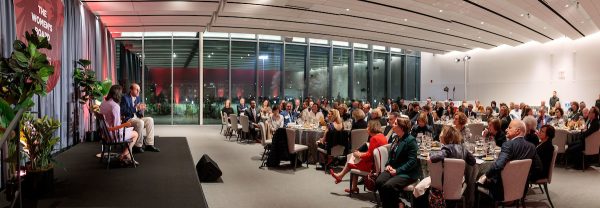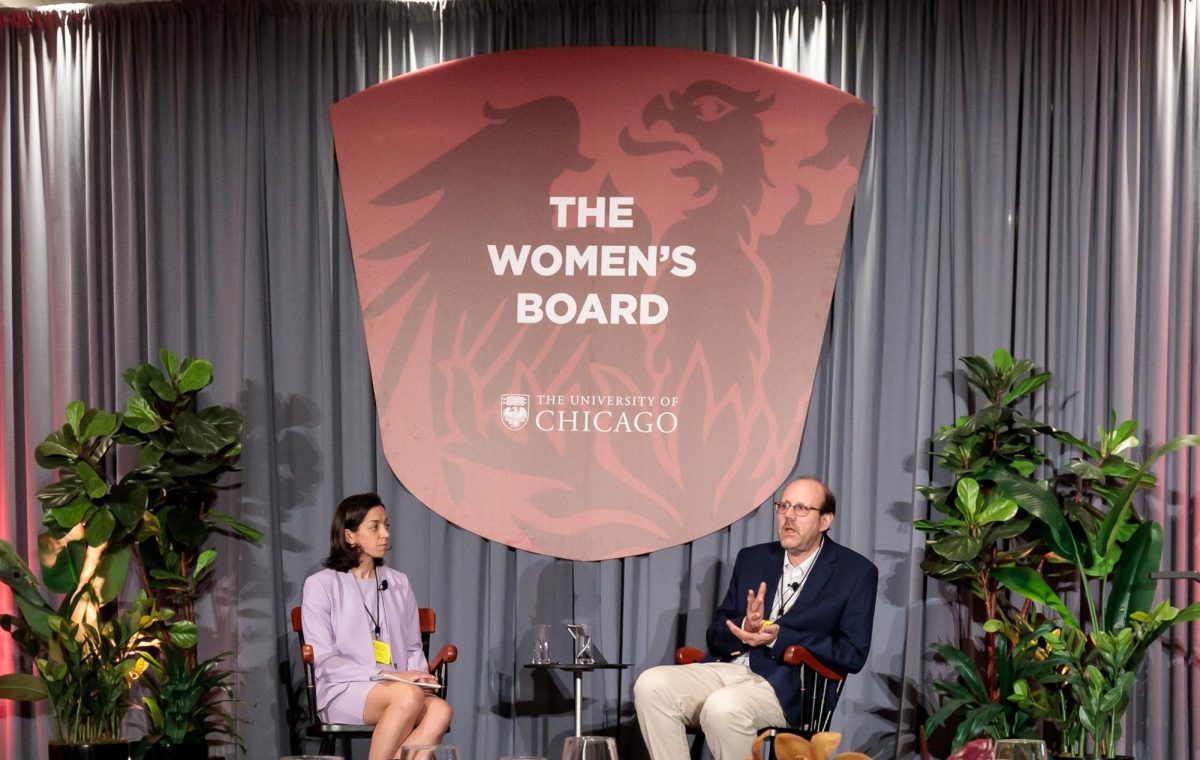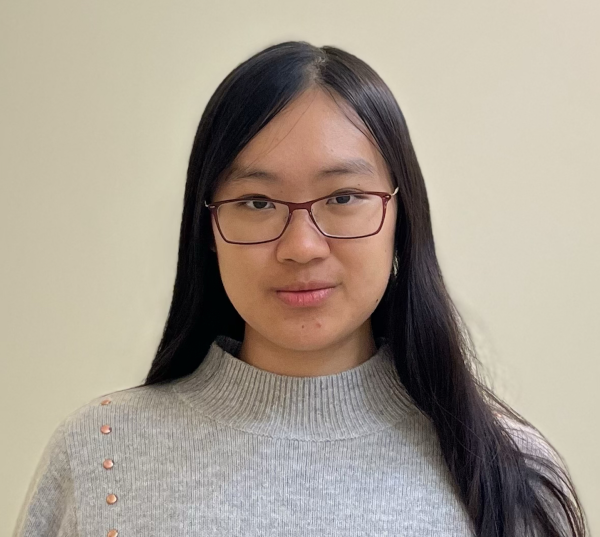The UChicago Women’s Board invited Nobel laureate and economics professor Michael Kremer to speak at their annual dinner at the Rubenstein Forum on November 16. The Women’s Board, a social and charitable organization run by women, annually funds grants to various causes associated with the University. Grants fall into four categories: arts and cultural institutions, faculty research and support, quality of student life, and community outreach. The Board granted a total of $561,111 across 14 grants in the 2023–24 cycle.
At the event, Kremer detailed the experimental approach to development economics that he pioneered, which led to him jointly winning the 2019 Nobel Memorial Prize in Economic Sciences. Emily Cupito, executive director of the Development Innovation Lab at the Becker Friedman Institute, joined Kremer on the podium to interview him.
“In medicine, people do trials. To see whether new vaccines are going to be approved, they try them and see whether it works,” Kremer said. “So the idea was, this was an opportunity [for economics] to learn from the same approach.”
With data from randomized experiments, economists can be more certain that the treatment itself, rather than other factors, is causing any differences they see between treatment and control groups.
“One thing about this method is you get an answer that is very hard to hide from. You can’t use fancy techniques to say ‘No, it’s not really there,’” Kremer said. “But I think, perhaps even more fundamentally, it takes economists out of the ivory tower. It has people working on very concrete problems with policymakers, with teachers, students, health workers, and people from other disciplines.”
Kremer said this on-the-ground engagement aspect of experimental economics was one reason why he was excited to come to UChicago and found the Development Innovation Lab.
“That type of engagement requires an infrastructure to operate,” he said. “President Zimmer and the University were interested in trying to create that same type of multidisciplinary, integrated effort to engage with developing.”
Kremer first began using this approach to evaluate the impact of different education techniques on student performance in Kenya. His discoveries there include the cost-effectiveness of deworming—medicine to remove parasitic worms from humans—in improving students’ academic performance.
Brigitte Ozzello, the director of the Women’s Board, spoke with The Maroon after the event.
“I think everybody was really excited after COVID to be gathering in person, to have a Nobel Prize–winning laureate, and [to] be in a festive environment,” Ozzello said.

The Maroon also spoke with Elizabeth Sonnenschein, a Women’s Board member who joined in 1993 and is currently serving on its Programs Committee.
“We have the talk first, and then dinner after, so people sitting around the table eating dinner, if they care to, can talk about the talk,” Sonneschein said. “It’s very University of Chicago.”
Sonnenschein first joined the Women’s Board as the wife of former University president Hugo F. Sonnenschein. Sonnenschein said chairing the Grant Committee, which decides how to allocate the Board’s funds, was one of her most enjoyable experiences with the Board.
“It’s such an interesting process to see 15 women sit around a conference table and negotiate with each other…and come to a consensus at the end,” Sonnenschein said.
The Board’s Grant Committee changes each year and consists of between 15 and 20 members who have not participated in the grantmaking process before.
“Our grants typically range in monetary value from $40,000 to $60,000 per grant,” Ann David, chair of the Women’s Board, said. “We tend to give grants to entities that are helping women, since we’re the Women’s Board, and we also like to focus on things that help the citizens of Chicago.”
In the 2023-24 cycle, David said one of her favorite grants had been given to a team in the University’s Department of Obstetrics and Gynecology for developing the ‘Bionic Breast.’ “Trials for the Bionic Breast, an implantable, neuro-prosthetic device that restores touch sensation and mitigates pain post-mastectomy, are planned for Q3 2023,” reads a summary of the grant on the Board’s website.
David emphasized that many of the Board’s members are not directly affiliated with the University and that they simply appreciate the community and charity aspect of the Board.
“They’re not all alumni, parents of alumni, or professors. I’d say about half of our membership has no connection to the University at all,” David said.
Ozzello, Sonnenschein, and David all mentioned that the Board’s membership and activities had taken a hit as a result of the pandemic.
“One of our biggest assets is offering people the ability to come together and network and be with like-minded women,” David said. “When we couldn’t do that, it was really hard to keep going. And we did, but since we’ve come back after the pandemic, we’ve lost a lot of members.”
Ozzello, who joined the Board’s staff four months ago, said she aims to increase fundraising and membership as the Board continues to recover from the pandemic.
“My goal is to grow the number of people who are interested in joining the Board, engaging with it, and having the pleasure of giving their money in a way that is meaningful to them,” she said. “My challenge now is, how do we nurture the past but move us more into the future, and align the Women’s Board really well with the vision and future of the University of Chicago?”









